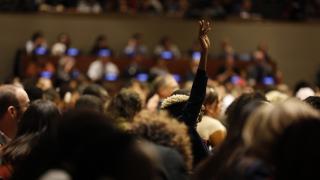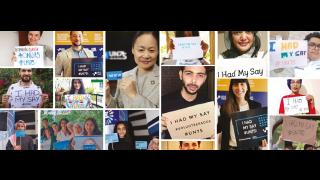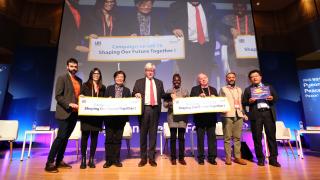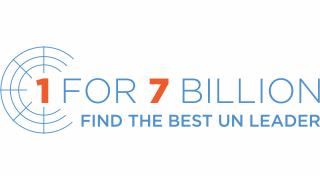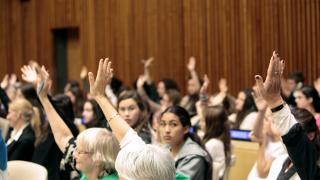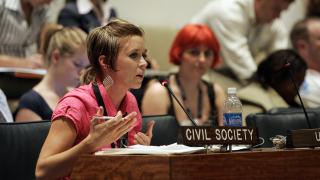
Eleanor Openshaw, Co-Director, New York office, International Service for Human Rights (ISHR)
Civil society is indispensable to the work of the United Nations. It contributes to discussions on international law and global rules and policies, and to working for their implementation. Although consultation with NGOs is recognised in the UN Charter, undue restrictions are being placed on the access to and participation of NGOs in the United Nations. One of the most egregious examples of this is through the ECOSOC Committee on NGOs (the NGO Committee).
The NGO Committee recommends approval of consultative status for non-governmental organisations, enabling access to and participation in a range of UN bodies and processes. Amongst the 19 members of the Committee are states with some of the worst records on protecting civil society space.
Some states that fear organisations who provide an alternative narrative to their own will try to block them. Through multiple deferrals of applications, members of the NGO Committee can deny NGOs access to the UN. Human rights organisations are 50 per cent more likely to be blocked than others. Those working on the rights of Dalit communities, LGBTI people and migrants, as well as those working on sexual and reproductive rights and impunity are also at risk of being treated unfavourably. Multiple deferrals of applications on no reasonable basis is one controversial method used by members of the NGO committee of excluding organisations on political grounds.
We call on the new Secretary-General to be a champion of civil society around the world and to commit to robustly defending and safeguarding NGOs’ access to and participation in the UN system.
The practice of the NGO Committee has been the focus of criticism by states, UN officials, UN independent experts and civil society members. Former UN Secretary-General Ban Ki-moon has noted "a disturbing pattern of actions against NGOs whose work is essential to progress" around the world and "even within the UN". He has been clear in stating, "[w]e cannot allow this authoritarian impulse to silence NGOs".
The UN should be a forum for airing diverse views. Through open debate the UN provides a vital forum for making advances on human rights protection and promotion and building consensus on issues considered controversial. For a small minority of member states to exclude the voices of certain marginalised groups from the UN on political grounds is illegitimate and counterproductive.
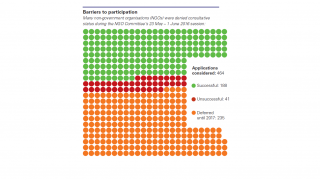
Fundamentally, we need to effect a change in culture whereby UN member states acknowledge the value of the input and constructive criticism of civil society. Individuals’ rights to access and communicate with UN bodies must be respected, safeguarded and encouraged.
A central part of this is ensuring transparency, consistency and impartiality in the work of the NGO Committee. Webcasting of its sessions and clearer criteria guiding the consideration of applications would be a key first step. States supportive of civil society engagement at the UN must also be prepared to put themselves forward as candidates for the NGO Committee.
The UN Secretary-General can set a tone and provide an important steer towards these objectives. In this regard, we call on the new Secretary-General to be a champion of civil society around the world and to commit to robustly defending and safeguarding NGOs’ access to and participation in the UN system.
About the author
Eleanor Openshaw is Co-Director of the NY office of International Service for Human Rights (ISHR) and leads ISHR’s work to promote NGO participation and protect civil society space at the UN.
Photo: Civil society representative participates in MDG panel discussion. Copyright UN Photo/Jenny Rockett

